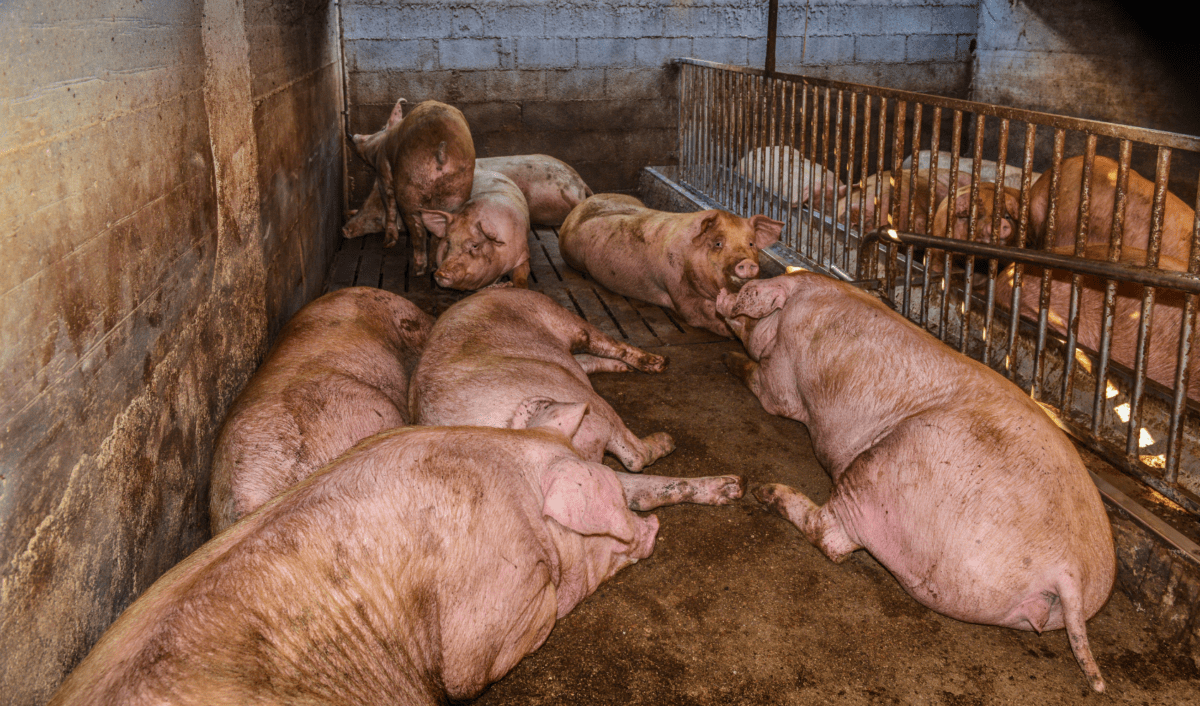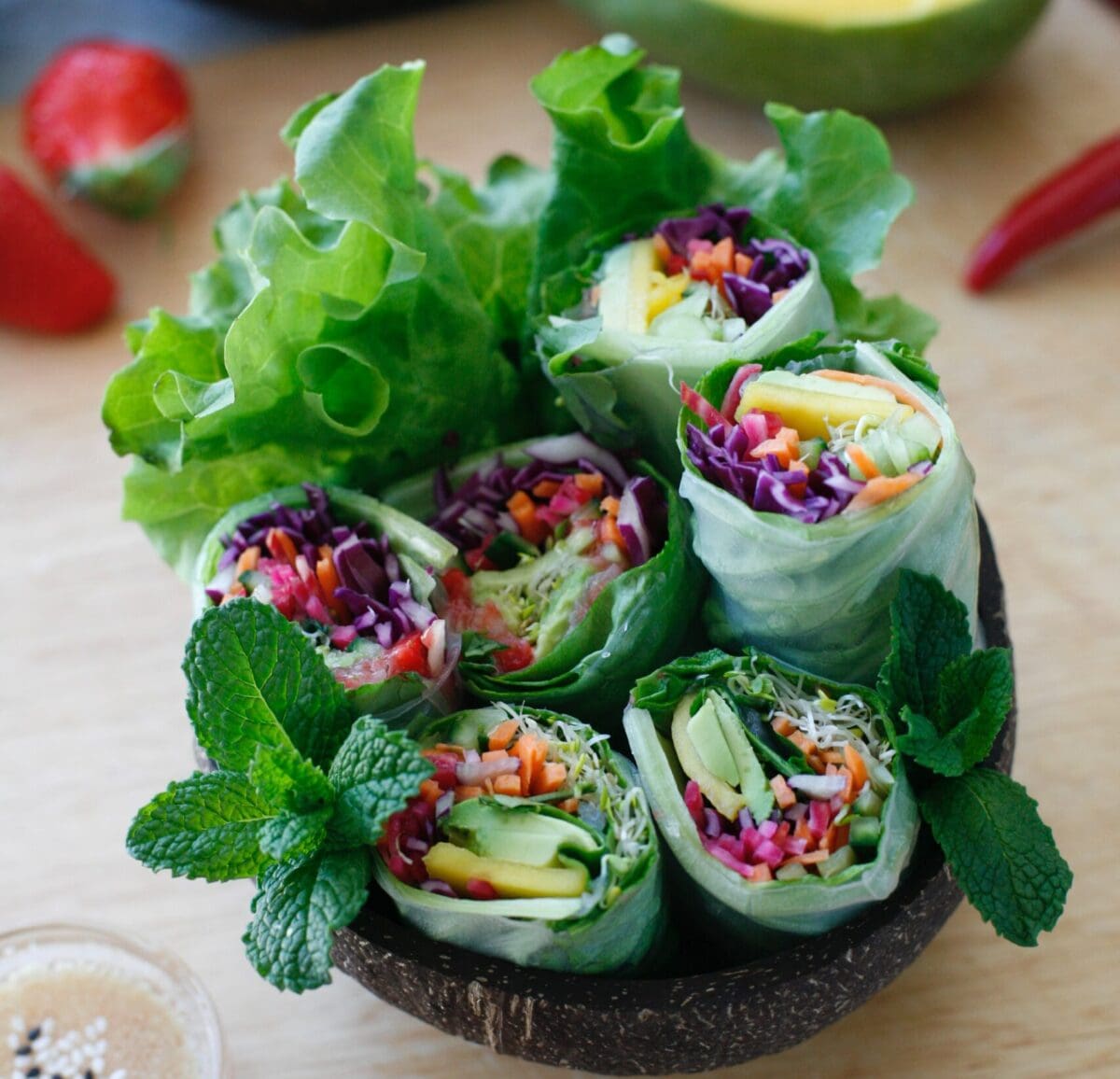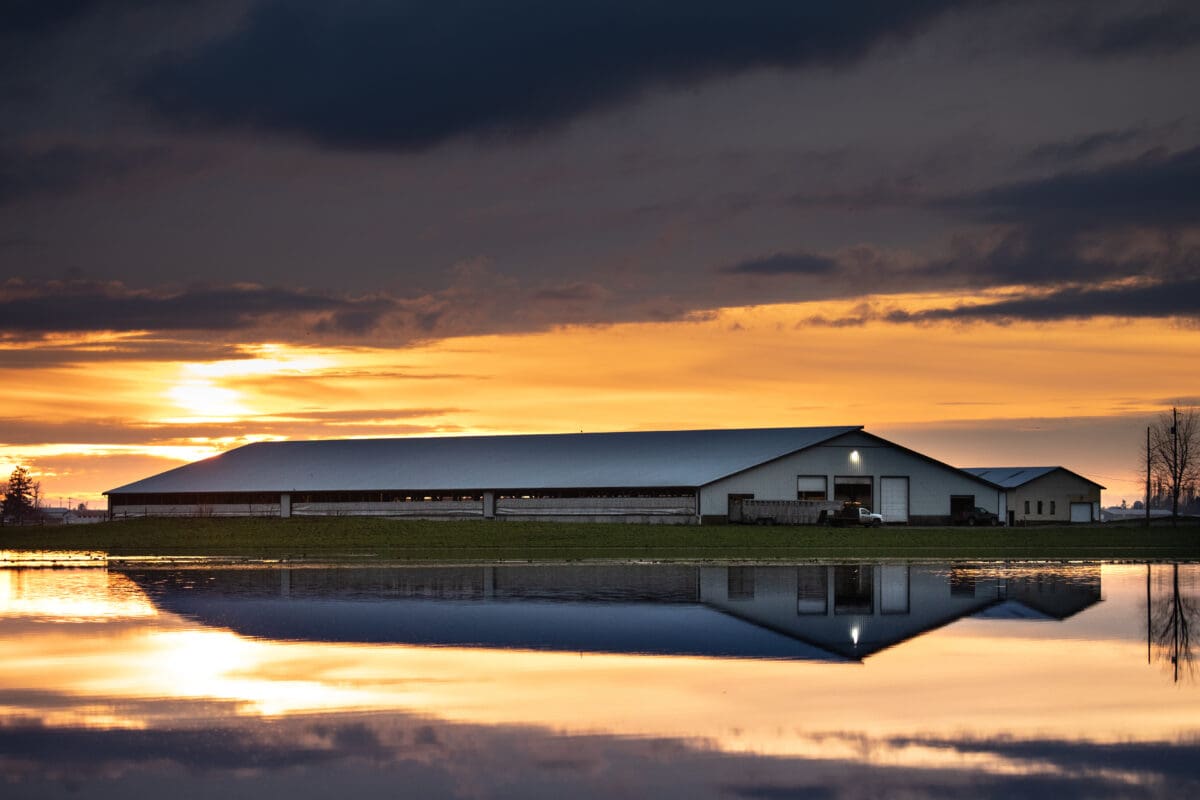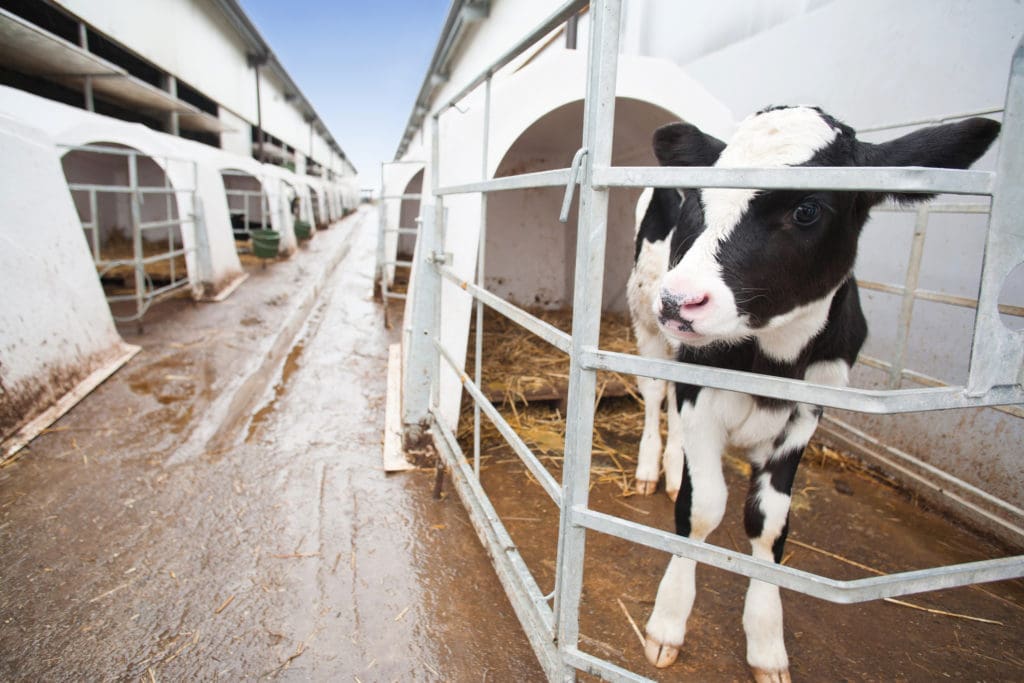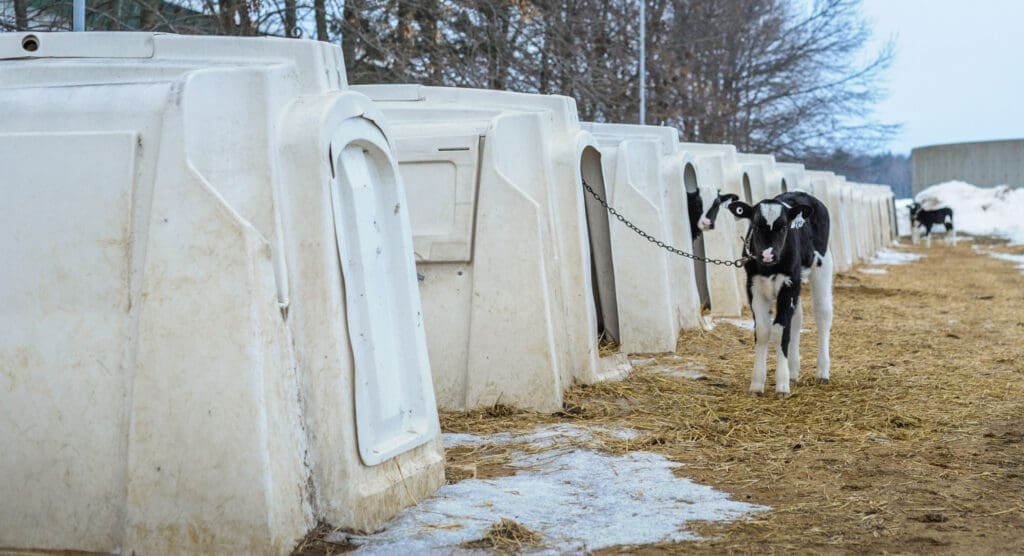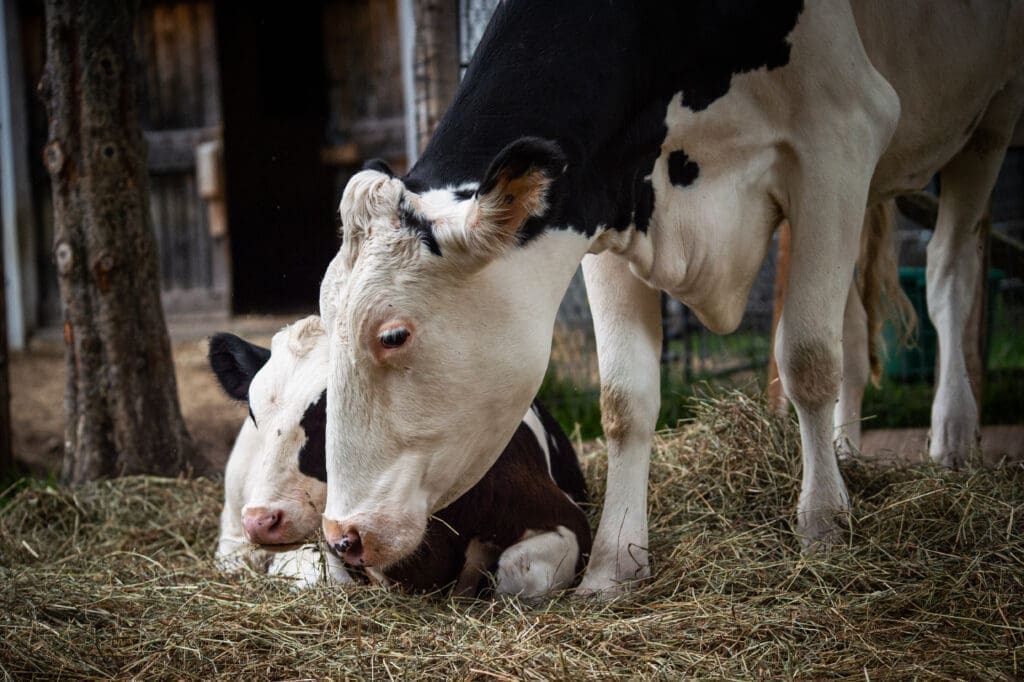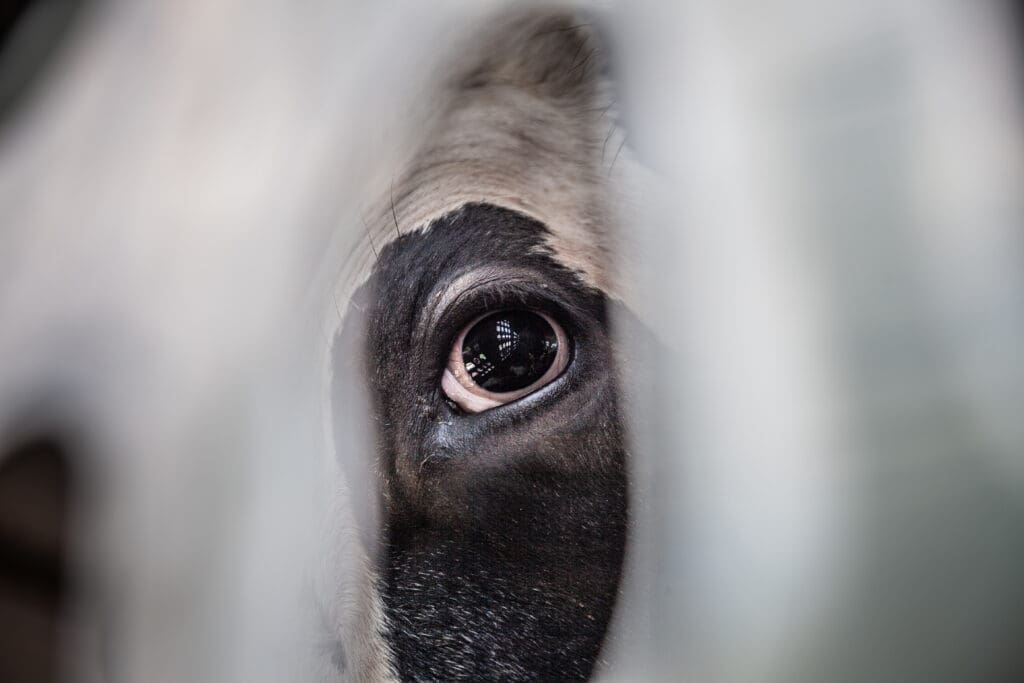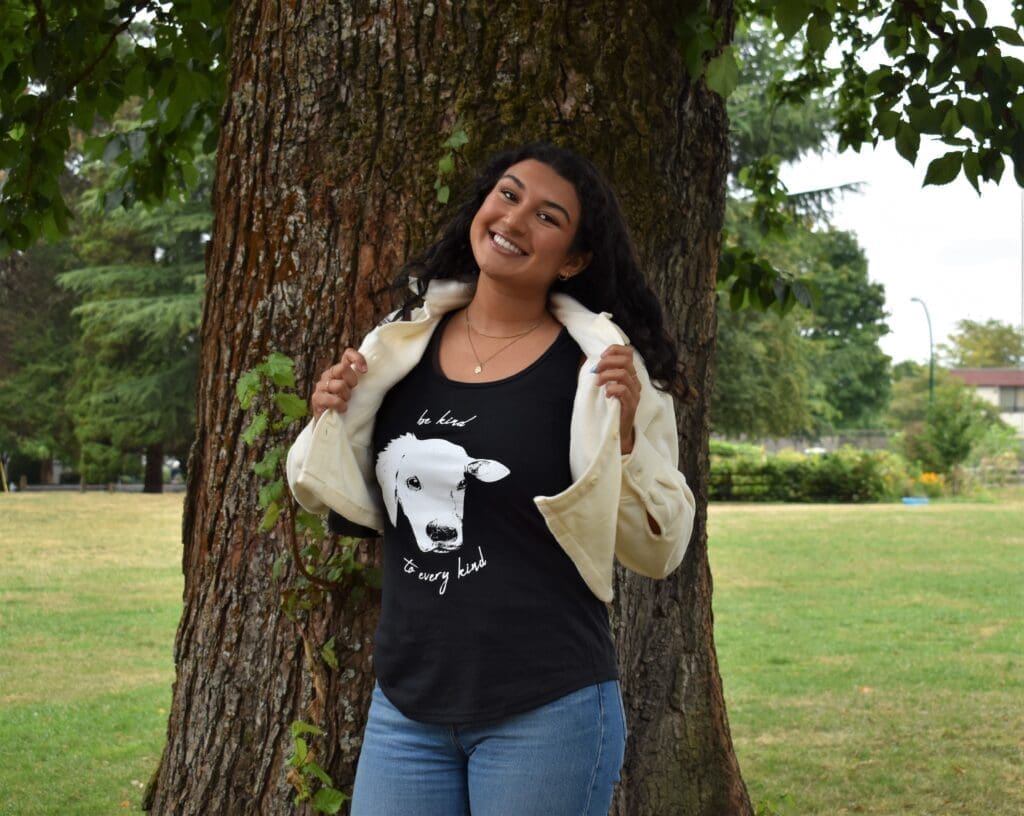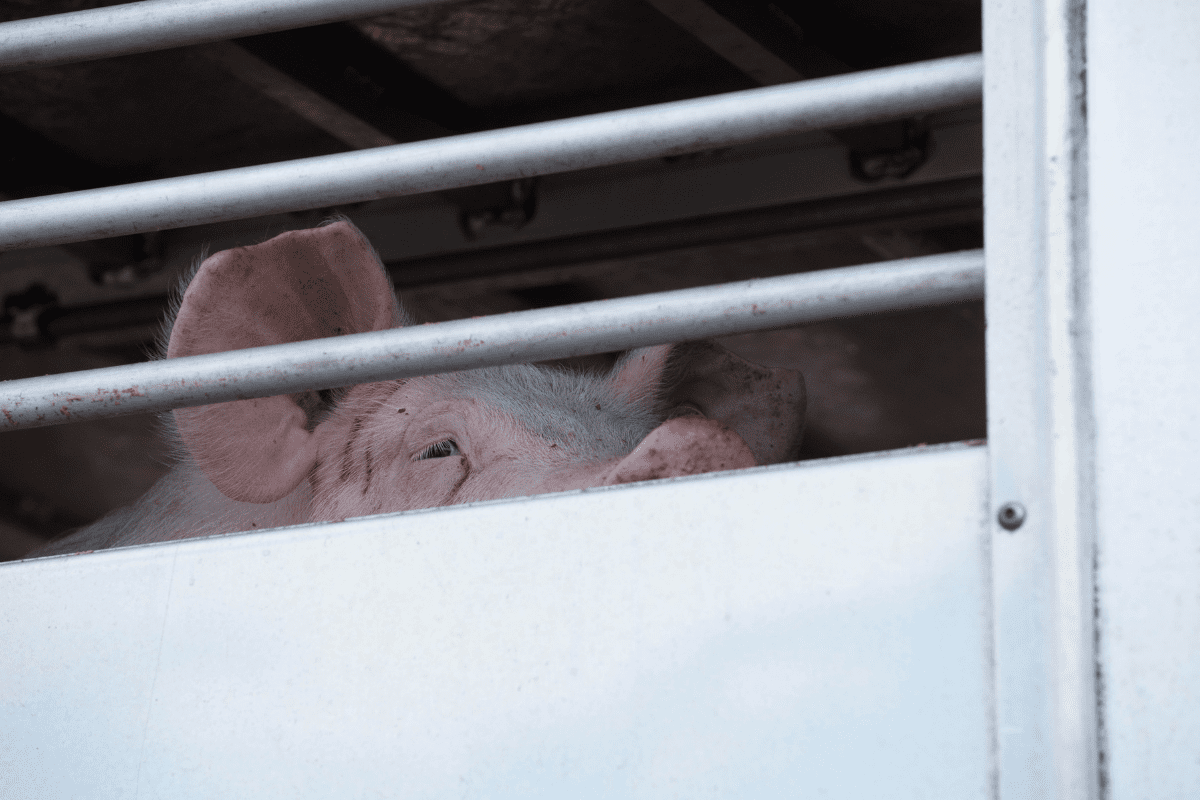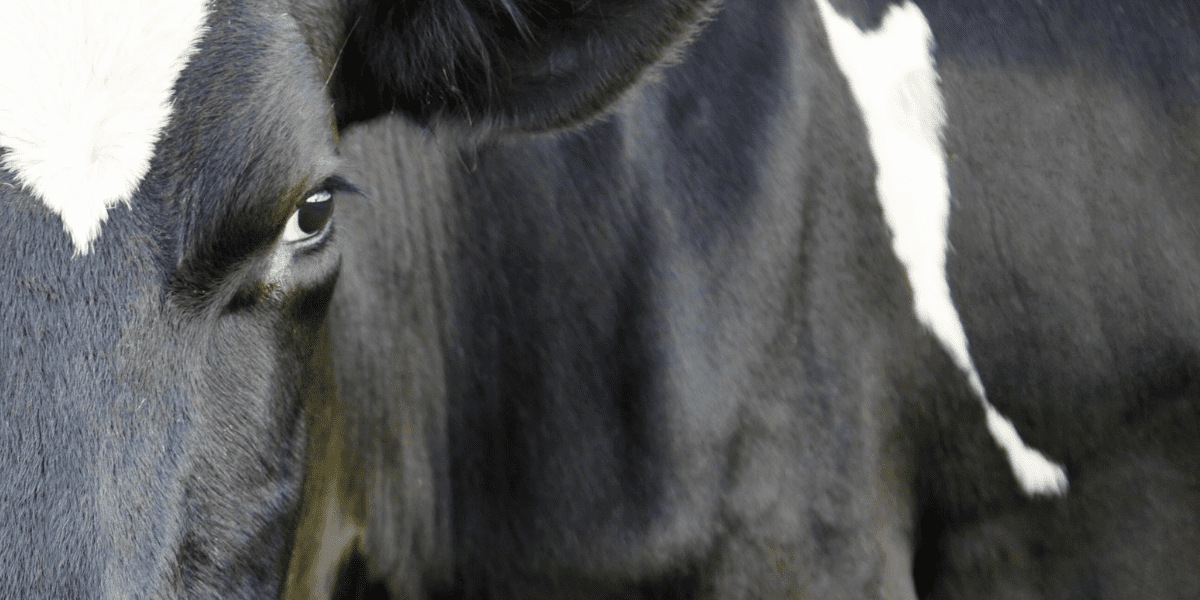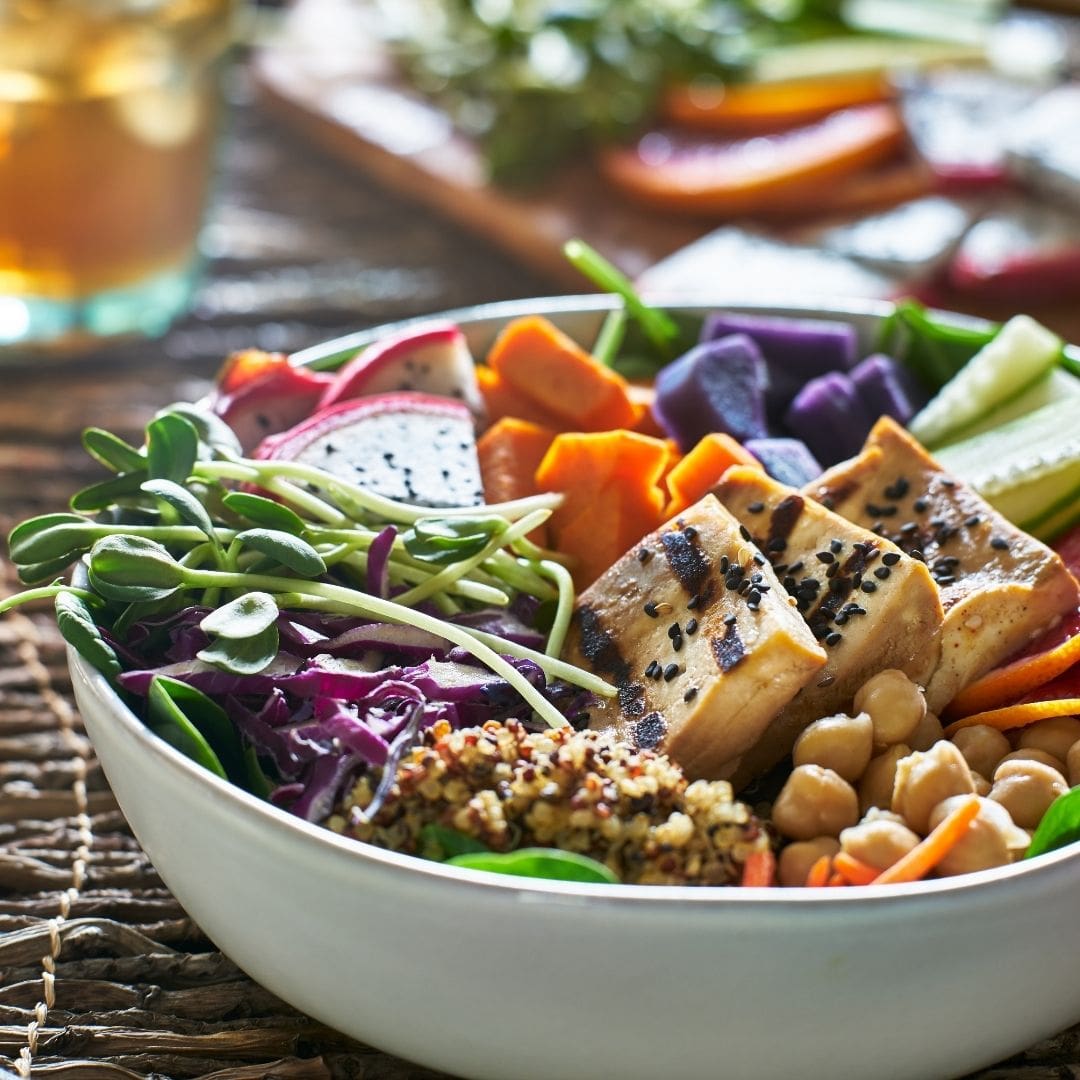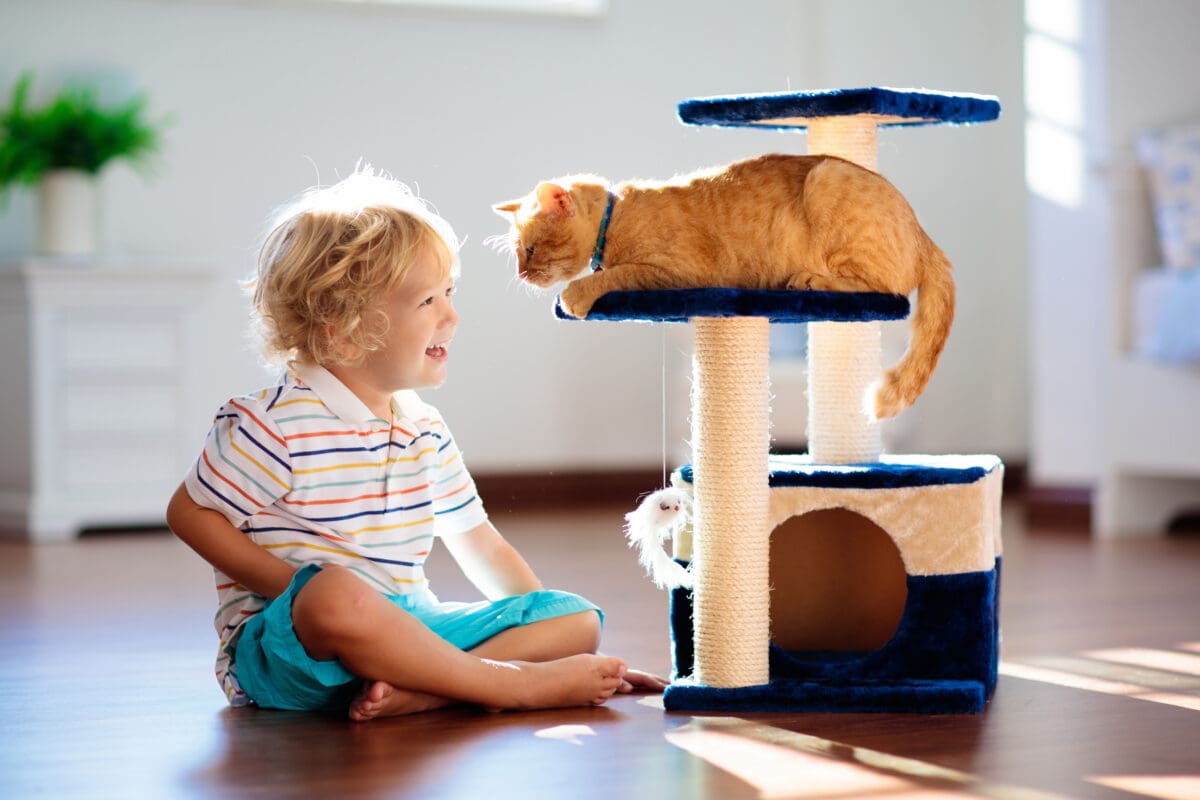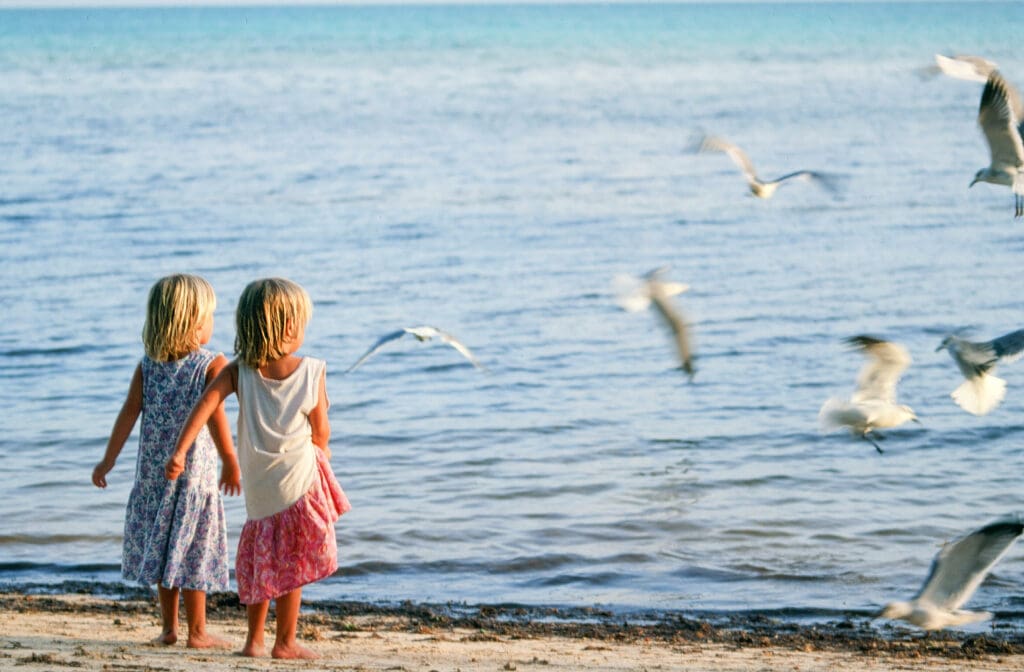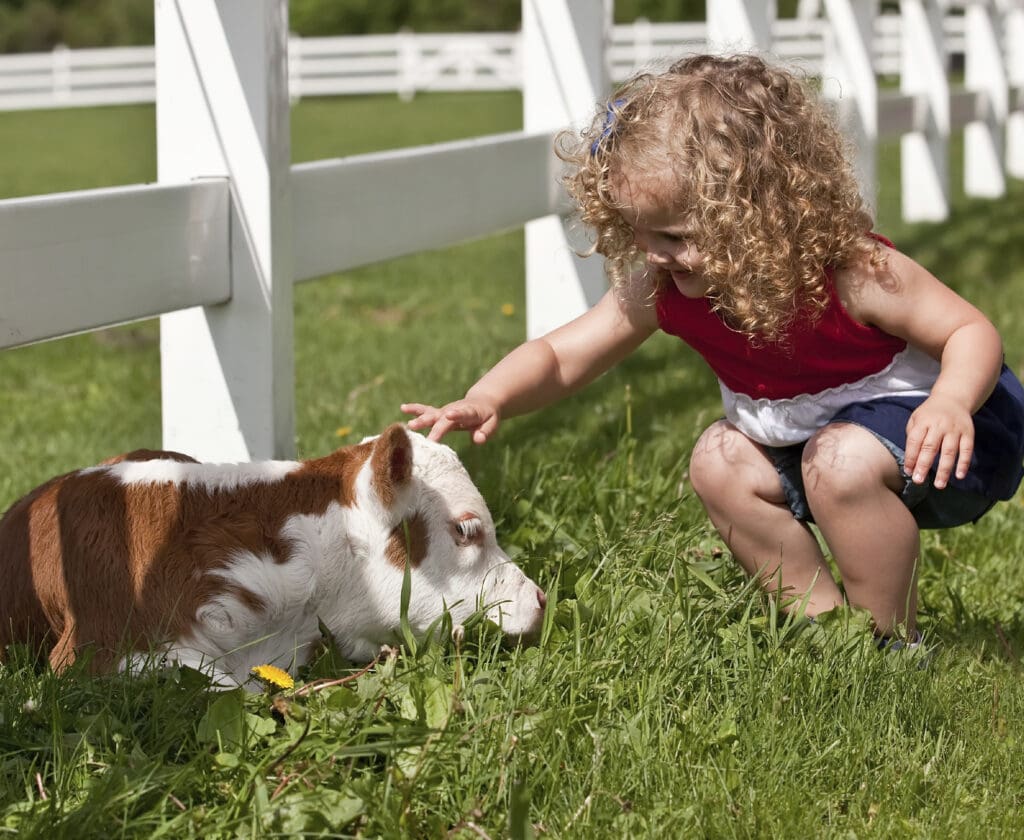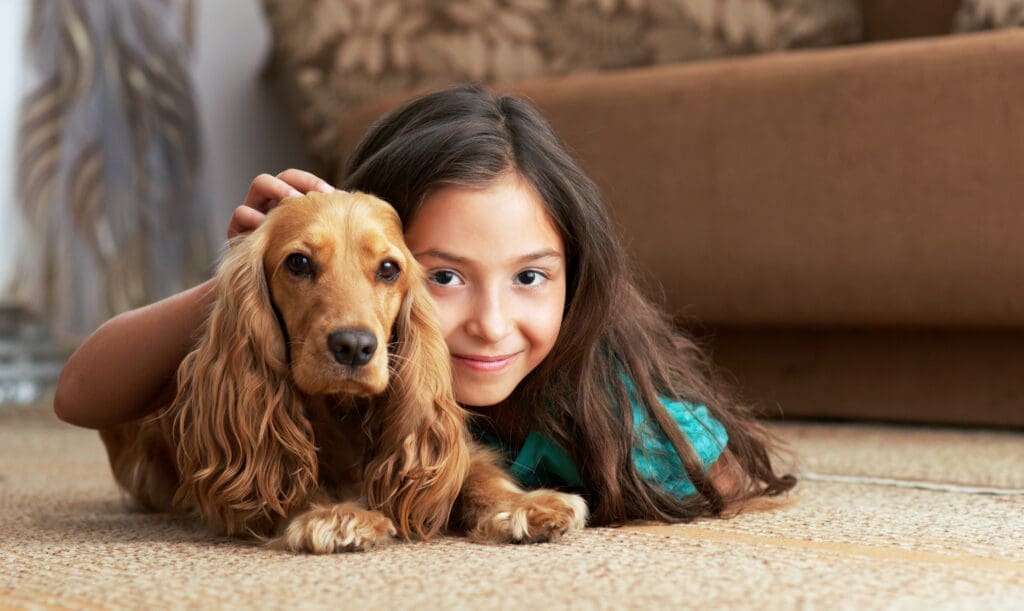Industrial animal agriculture has been called the biggest animal welfare crisis on the planet, with more than 70 billion land animals killed for food each year.
The Sentience Institute estimates that 74% of farmed animals are currently on factory farms, which are characterized by large numbers of animals confined in cramped, barren and unnatural conditions. This episode of the Vancouver Humane Society’s podcast, The Informed Animal Ally, explores the practices and laws that impact the suffering of these animals throughout their lives.
Practices on farms
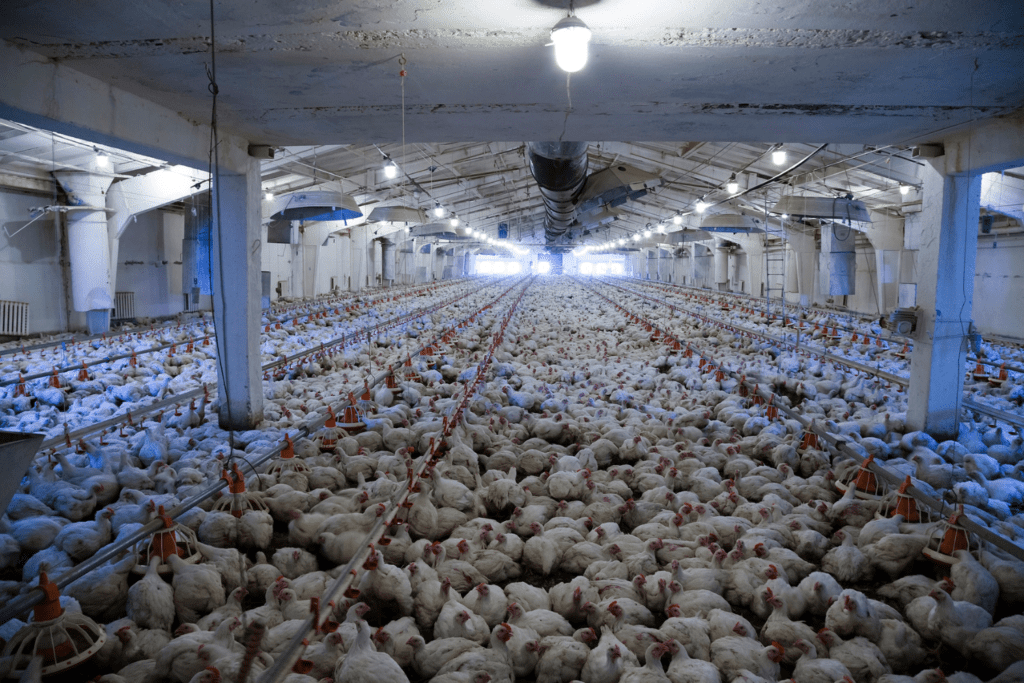
The Canadian Criminal Code may apply to farmed animals—they include an offense for wilfully killing, maiming, wounding, poisoning animals—but only if there is no lawful excuse.
The National Farm Animal Care Council’s Codes of Practice outline the minimum generally accepted practices of animal management; practices within the codes would be considered a “lawful excuse” for causing suffering. In British Columbia, the Codes are incorporated into law as a means of defense for farmers even in cases when there is evidence of animal suffering.
Many practices we would consider essential to the welfare of animals are labelled in the Codes as “recommended practices” and not requirements. Even where there are requirements that help to protect welfare, there is no use of the codes for proactive enforcement by government.
Generally accepted practices can cause acute pain and prolonged suffering. For instance, the chicks of egg-laying hens are met with practices that cause immense suffering or death soon after birth.
- Male chicks born from egg-laying hens are considered a byproduct because they do not grow as quickly as chickens bred for meat; they can be killed by being sent down a conveyor belt into a macerator, gassed, or suffocated in plastic bags.
- Female chicks are prepared to be raised for egg-laying by being debeaked; the tip of the top part of their beak is cut off with a hot blade or laser without anesthetic. This mutilation is done to prevent hens from pecking each other and themselves in stressful close quarters rather than giving the hens more space and freedom.
This is just one of many examples of animals receiving a punishment or painful prevention for an undesired behaviour, rather than addressing the poor conditions that cause the behaviour.
You can learn more about generally accepted practices on farms by registering for free at the Animal Justice Academy and watching The State of Animals Used in the Food Industry: In-Depth with Geoff Regier.
Transportation
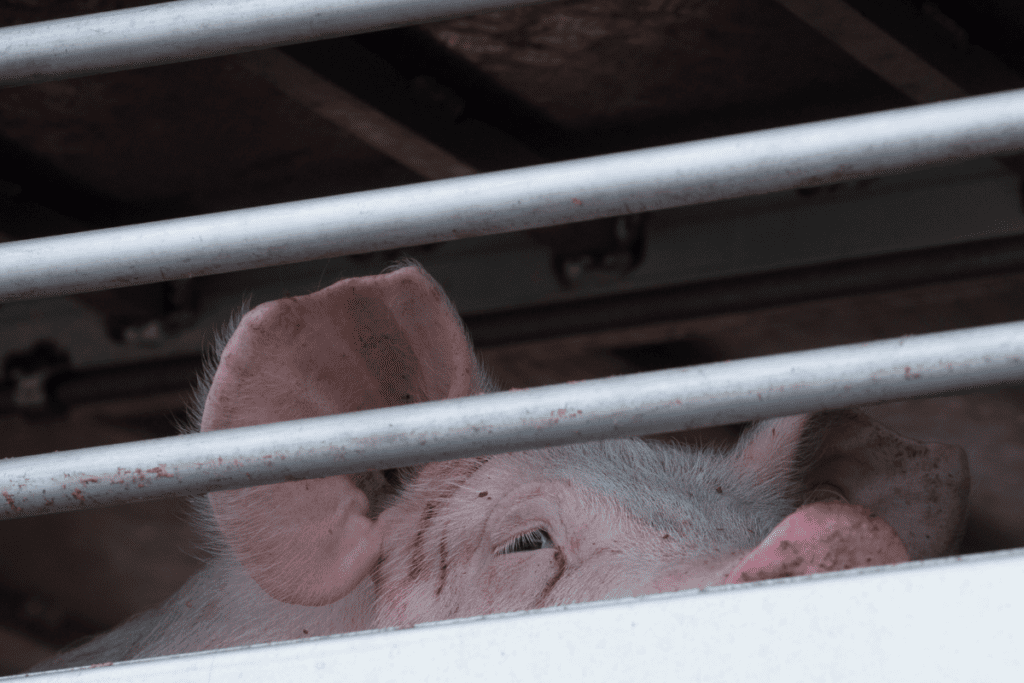
The Health of Animals Act regulates animal import and export, including transportation times.
There are very few farms with on-site slaughter facilities, which means most farmed animals must be transported before they are slaughtered.
The transport of animals is regulated federally by the Canadian Food Inspection Agency (CFIA), but the loading of the animals is considered provincial jurisdiction.
Allowed loading practices can cause serious harm to animals, as was evidenced in graphic footage captured on a B.C. egg farm. When animals arrive at the slaughter facility gravely injured or dead, no one is held accountable. Instead, the suffering can be deemed accidental because Codes of Practice were followed and CFIA veterinarians can deem it outside their jurisdiction because the harm happened before transport.
In February 2020, new transport requirements came into effect. Unfortunately, these laws had a negligible impact on the well-being of animals. The new regulations still lag behind other nations. Animals can be transported for long periods without food, water, or rest; they often arrive at slaughter facilities severely dehydrated, unable to stand, and surrounded by their own waste.
Slaughter

Even animals such as dairy cows and egg-laying hens, who are primarily used for the milk and eggs they produce while alive, are slaughtered at the end of their lives.
Slaughter is regulated federally through the Safe Food for Canadians Regulations. Though the federal government website claims to require “humane slaughter of food animals”, in reality animals are typically already stressed entering the facility and the slaughterhouse causes further fear and distress.
Laws require that animals are rendered unconscious before being bled. The methods through which this is done have varying degrees of effectiveness and varying degrees of pain. For instance, the gassing often used to render pigs unconscious causes distress. Lori Marino, a neuroscientist and expert in animal behaviour and intelligence, says that “Pigs are at least as cognitively aware as a monkey,” and that their squeals in the slaughterhouse are “distress calls”.
A study published in 2017 found that slaughterhouse workers—often vulnerable migrant workers—experience higher levels of stress than the general population.
Auction of farmed animals

Auctions of farmed animals are typically regulated by the provincial animal cruelty laws; however, there is not usually anyone monitoring them.
Often, there are animals sold at auction who are not in good condition.
Auctions themselves are scary and overwhelming for farmed animals, as they are unfamiliar, loud, and involve a lot of uncomfortable and often cruel handling. Similarly to all other situations with little oversight, animal suffering is the norm.
Labelling of animal products

Very few terms used in the labelling of animal products are actually regulated.
All labels for animal meats where an animal production claim is made such as “organic”, “vegetable grain fed – no animal by-products” or “raised without antibiotics” must be registered with the CFIA.
“Nature” and “natural” are terms often misused on labels and in advertisements and have no meaning for animal well-being. “Organic” means that it follows the Canadian Organic Standards, which still allow painful procedures. However, advertising can be carefully written; is an animal raised by organic methods, or are they only fed an organic feed?
Terms that are not regulated include “grass-fed”, “grass-finished”, “free range”, and “free run”. Hens can be very crowded in barns of 25,000 that are free-range or free-run.
Subliminal messaging and imagery such as the use of the colour green, images of leaves and open pastures, and positive words such as “happy” can also influence the way consumers perceive the welfare of the animals. These are purely marketing tactics and do not reflect the state of the farms.
When it comes to nutrition claims, there are restrictions. However, many of the claims that are on animal products are not on plant products. For example, even though fruits and vegetables can give you much of the nutrition we require in our diets, there are often no labels on them at all because it isn’t legally required.
What you can do
If everyone on earth ate the average Canadian diet, we would need 1.3 earths for agricultural land alone. That huge demand is driving intensive agriculture to try to maximize the food output in the smallest possible space, leading to the most serious welfare concerns.
The best way to reduce the demand for animal agriculture is to start transitioning our consumption to more plant-based foods.
Every level of government and many other institutions like schools and businesses have climate commitments right now, and an important part of meeting those goals would be a shift away from animal agriculture and toward plant-forward policies and legislation.
For instance, the Canadian government currently subsidizes the private animal agriculture industry with millions of taxpayer dollars. Funding that currently props up the animal agriculture industry could be used to invest in sustainable plant-based agriculture and emerging technologies like lab-grown meat.
Governments can also help by improving animal protection laws to immediately address industrial animal agriculture, which produces more greenhouse gas emissions and uses intensive methods with some of the greatest animal welfare concerns.
If you’re interested in spreading the message about eating a plant-based diet, or if you’re thinking of trying more plant-based foods yourself, you can find recipes and tips on Vancouver Humane Society’s PlantUniversity platform.
Ag-gag laws
Ag-gag laws are anti-whistlerblower laws that apply within the agriculture industry. They can differ between provinces. They aim to prohibit the taking and sharing of footage of farm animal suffering, under the guise of biosecurity. However, ag-gag laws don’t have to be in place for law enforcement agencies to recommend charges against people who take undercover footage, or go onto farms for the sole purpose of exposing animal cruelty. Charges like “trespassing” and “mischief” are applied even when there are no ag-gag laws in place. A number of cases have been going to court in recent years.
To read industry’s perspective on these laws, check out this article from Canadian Poultry or this article from the Canadian Hog Journal.
To read animal advocates perspectives in more detail, you can read this article from the Animal Protection Party or this article from Animal Justice.
Right now, in B.C., 3 animal activists are facing charges for exposing suffering on a farm in Abbotsford, called the Excelsior 4.
Next episode
Keep an eye out on July 26 for the next episode of The Informed Animal Ally on fishes. Thank you for listening and thank you for reading.

